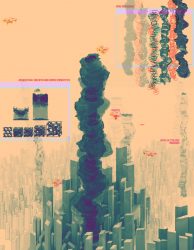
Interview with Rens Wijnakker
1) Briefly introduce yourself and tell us a bit more about your practice. What do you work on? What are the issues you aim to address in your profession?
As senior landscape architect, I am mainly involved in area development and large scale strategic design. Our office applies a research-by-design approach, dealing with big transitions like climate change, renewable energy systems and biodiversity restoration; but also social issues like healthy living, a vital economy and social inclusivity. We always attempt to connect the large scale (sometimes superlarge – like a country or continent) to a local scale: what do these transitions mean for our living environment and the architecture we live in? And to what specific design challenges does this lead for architects and landscape architects?
2) What are your thoughts over the issues raised by the Waterless World competition? What do you think could be a central problem to be faced by our designers?
The thought exercise of an entirely waterless world forces participants to think in extreme measures. No water means no plants, no rivers, it basically means no life. A pessimist would say that is what the world will look like within a few centuries. Will mankind survive? And what do we learn today to prepare for or prevent this?
3) Which tools & disciplines can come into play when designing a more water-aware built environment? Which elements can be used by our designers?
A difficult question since the topic is so broad. Purely physical, I think it is important to understand water as part of the ecosystem we live in. How do water cycles work? How do we get fresh water if water always flows to the sea? It is primary school geography, but it helps to understand how to restore our natural systems. So we need an understanding of ecology, biology, geology and meteorology.
4) Are there any reference projects you could suggest to inspire our community for this design challenge? Why did you choose this specific example?
A project we are doing is the ‘Green Tower’, a former prison tower in Amsterdam that will be partly deconstructed transformed into a 14 story ‘vertical park’. But besides a recreational attraction, it will be the central node of a sustainable energy and water system for the neighbourhood around it.
5) In your experience, what does it take to win an architecture competition?
My personal experience is that a competition design process always starts with a huge pile of amazing but incoherent ideas. Then, often not too long before the deadline, we discover a conceptual topic or narrative that binds all these ideas together to one strong story. Those are the moments that I know: here we have a good chance of winning. That is what I would advise: make sure your concept is mind blowing, and make sure it is elaborated into the veins of the design proposal.





